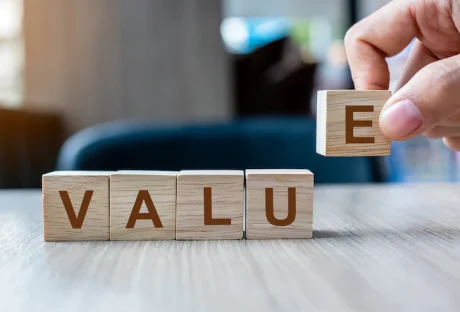Amrik Virk
Amrik is the Brand Manager at BusinessesForSale.com. He is experienced at helping connect business buyers with sellers, through marketing and content writing.

Why Correctly Valuing Your Business Is Essential
Knowing your business's accurate value can be helpful if you plan on selling your brand someday. However, the fear sellers have in getting the best possible price is understandable. Selling your business is one of the most significant events in your professional life. While this brings some caution, it should also be exciting as you move on to your next adventure. Before you start the process, it's a good idea to use a valuation calculator to get an idea of how much your business is worth. Gathering as much information as possible about your business is essential. Preparation is key. With that in mind, here are 6 key tips to help you value your business correctly. Tips To Help You Value Your Business Here are some ideas that can help you understand the valuation of your company: 1. Understand Price-To-Earning Ratio (P/E) It is typical for businesses to use the price-to-earnings ratio to understand their value. This tip works best for companies that have an established profit track. The P/E will be higher if the business has high-profit growth. Let us take an example — if your company makes $500,000 profit after taxes and you utilize the P/E ratio of 4, it means your business will be valued at $2,000,000. The P/E ratio will depend on the growth ratio of your company. For instance, start-ups will have a higher ratio because they are high-growth businesses. On the other hand, high-street companies, like real-estate companies, will have a lower P/E ratio. Since P/E ratios can differ extensively, no standard ratio can be used to value all types of businesses. In most cases, the valuation between 4 and 10 is used as the standard. 2. Cost Of Entry This tip is quite simple — this is the total cost of setting up a business similar to the one being valued. In this case, you will have to consider every factor that helped the business get to where it is today. This involves all the costs, tangible assets, building a customer base, recruitment, etc. Next, you need to think about all the money you can save while setting up the business. For instance, the costs you save by using cheaper material alternatives or setting up the business elsewhere. To get the entry cost, you need to subtract the latter (saved money) from the former (the cost of setting up the business). This is your valuation. 3. Valuing The Business Assets In the case of established and stable businesses, these companies often have a lot of tangible assets that can be valued. Some great examples, in this case, include those in the manufacturing and property businesses. You will have to start working out the company's NBV (Net Book Value) to start its asset valuation. In most cases, these assets will be recorded in the accounts of the business. Next, you simply need to make a few other adjustments like depreciation, etc., to determine the assets' actual value. 4. Discounted Cash Flow This is a complex way of determining the value of a company – it is all about making reliable assumptions about the future of a business. In most cases, this particular method is used by companies with more predictable and stable cash flows. For example, utility companies. As you can guess, this tip will help you understand the value of the business by estimating the worth of the future cash flow today. Adding the dividends forecast will help you figure out a valuation for the next decade or so. 5. The Rule Of The Thumb There are a handful of companies that deal with the buying and selling of businesses. Therefore, it only makes sense that these businesses utilize certain standard methods to determine the value of their companies. They are based on other things, apart from profit. When selling a business, it's important to identify the target market and understand their needs, such as business owners who will buy a business, in order to position the sale effectively and maximize the value for both the buyer and seller Let us take the example of retail companies. The value for these businesses is derived from other factors like the number of outlets, total number of customers, business turnovers, etc. 6. Non-Measurable Valuation As we have said in the beginning, the worth of a business is exactly what the other person is willing to pay. In this part, even intangible assets can be considered. If your company has a better relationship with your suppliers and/or customers, it will be more valuable. If the buyer does not have a stable team to grow your company, you can also add a strong management team for additional value. Conclusion With the help of these tips mentioned in this article, you should be able to approximately evaluate your company. To further help with your valuations, there are useful business valuation tools online. For an online business valuation tool, you will usually need to provide some basic data about your company, which will then be measured against the standardized benchmark to provide you with an accurate company valuation. Additionals: Master’s In Business Analytics: Is It Worth The Effort? Your Business Needs Marketing To Survive – Here’s Why Content Marketing Campaign Strategy For Small Business How Business Owners Can Protect Themselves if Their Business Fails
READ MOREDetailsPopular

Technologies For Creating A Startup Idea
20 Feb 2023

How to Download Facebook Videos on Android?
07 Feb 2019

7 Rules of Effective Ecommerce Web Design
28 Jan 2021













